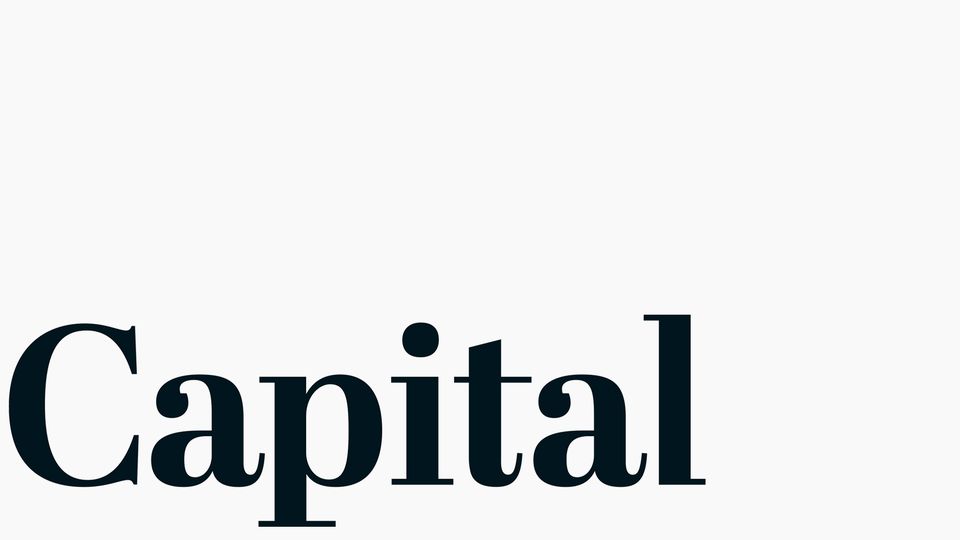The SPD wants to cut off state benefits for people receiving citizen’s allowance who work illegally. Economic researchers say there are more sensible measures.

This is original content from the Capital brand. This article will be available for ten days on stern.de. After that, you will find it exclusively on capital.de. Capital, like the star to RTL Germany.
The SPD must once again be there for the “working middle class,” said party leader Lars Klingbeil after the losses in the European elections. This apparently also includes paying more attention to injustices in the citizen’s allowance. The party wants to cut off state support for citizen’s allowance recipients if they are caught working illegally. This was first reported by the “Bild” newspaper. What is behind this and does it even make sense?
How widespread is undeclared work?
Undeclared work is a problem in Germany. According to model calculations, around eleven percent of the total economic output is generated in the so-called shadow economy, a large part of which is undeclared work. “In terms of the size of the shadow economy, Germany is in the middle of the pack compared to industrialized countries,” says Bernhard Boockmann, who researches the topic at the Institute for Applied Economic Research.
How widespread is undeclared work among recipients of citizen’s allowance?
As with the general measurement of undeclared work, it is impossible to really determine how widespread the problem is when focusing more specifically on recipients of citizen’s allowance. However, there are different approaches to narrowing down the phenomenon.
On the one hand, surveys on undeclared work in the population as a whole show that it is more likely among the unemployed than among the employed. “This is also plausible, because they have fewer time restrictions,” says Boockmann. Unemployed people generally have more time to pursue other tasks – including undeclared work. There is also an incentive to earn some extra money and not report it, because that way you don’t lose out on state aid.
Andreas Peichl, who researches citizen’s allowance at the ifo Institute, among other things, sees another indication of undeclared work: “If you look at the data on how much citizen’s allowance recipients earn, the largest accumulation is exactly 100 euros.” Anyone who earns 100 euros in addition to their citizen’s allowance does not have to count it. “That would be one day’s work at minimum wage per month, so a very unlikely case.” He suspects that citizen’s allowance recipients register a job with this wage, but then earn more than the 100 euros undeclared – a so-called stealth job. “Overall, around 15 to 20 percent earn less than 100 euros,” explains Peichl. “It’s quite possible that a large proportion of them work undeclared.”
Undeclared work is already illegal, why is that not enough?
“There are instruments designed to deter illegal work, and of course they also apply to people receiving citizen’s allowance,” says Boockmann. It is already a criminal offense to work without registering, and you can even end up in prison for it. But: “In many cases, the risk of being caught is simply too small to avoid it.”
This also has to do with the 100 euro allowance. When customs come to the workplace to carry out an inspection, employees can show their employment contract – after all, it could be that the hours they work this month are on the day of the inspection. When customs carry out the inspection, they will not see that they were there the day before.
What does the SPD’s initiative achieve?
“I wouldn’t expect sanctions for illegal work to have much effect,” says Andreas Peichl. “If the threat of sanctions would help combat illegal work, that would make sense. But I don’t believe it would have a deterrent effect.” The problem: If it is unlikely that you will be punished, the severity of the punishment is not important.
What would be a good alternative?
“Why do we have illegal work? Because people feel that they end up with more money than if they were working legally,” says Peichl. The incentives for legal work must therefore be improved. So far, a large part of earnings are counted as the 100 euro tax allowance. If people were allowed to keep more, it would be more attractive to pursue legal employment.
In addition to positive incentives, negative incentives would also help, but their effectiveness would have to be improved through better controls. According to Peichl, this would require greater cooperation between customs and job centers – customs could then focus on checking people who earn just under the 100 euro limit.
Source: Stern




